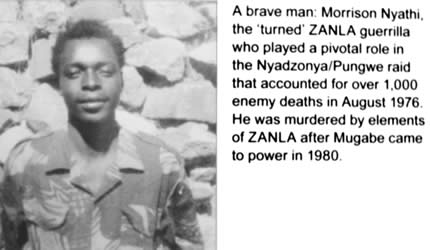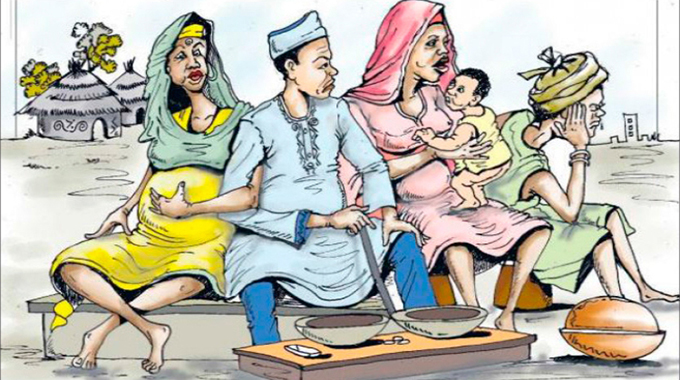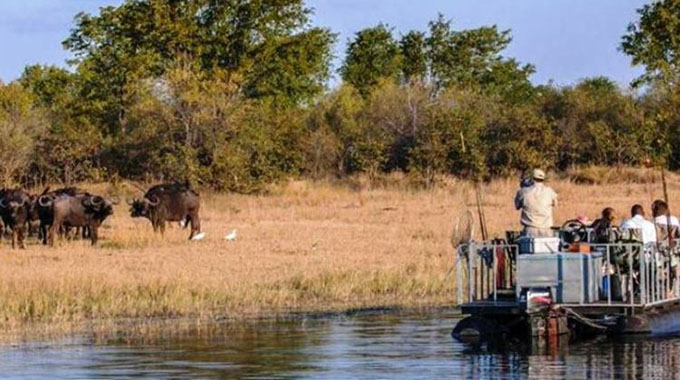CISSA: When the Ides of March woke up a continent
It then became clear that there was a compelling need for a collective response to the security threats facing Africa.
The incident became a wakeup call for heads of intelligence and security services in Africa.
It became clear that co-operating with neighbours and collaborating in intelligence and security service in Africa, was mandatory.
The lesson was that no African state, no matter how powerful could achieve national security without cooperating with its neighbours and collaborating in intelligence and security networks, especially given that there is plethora of insecure and porous borders, mounting poverty and guns lying around.
The threat of terrorism in Africa is amplified by the existence of poverty, unsecured borders and ungoverned spaces and the growth of radical local and internationally connected movements that sometimes employ terrorism. The availability of large stocks of weaponry from collapsed governments provides a constant supply for terrorists.
Africa has long been a conduit for the shipment of hard and synthetic drugs between the other continents.
Africa therefore, provides an area of weak government control hence lower risks of detection. Poverty related corruption also helped to facilitate drug trafficking. In recent years however, Africa has assumed a drug consumer status.
The problems caused by drug consumption, such as disease, violence and corruption is thus becoming more pronounced and Africa needs to act to stop the trend. It is against this background that the Committee of Intelligence and Security Service of Africa (CISSA) was formed in Abuja, Nigeria on August 26 2004, bringing together intelligence and security service from 49 African Union member states. Its aims and objectives include assisting the AU and specifically the Peace and Security Commission to effectively deal with security challenges confronting the continent.
Zimbabwe will host the 10th conference CISSA in Harare from May 1 to May 8 2013. President Mugabe will officially open the Conference while State Security Minister, Dr Sydney Sekeramayi will officially close the conference.
Central to the formation of the organisation was the growing awareness of the importance and practical value of cooperative and constructive multilateralism. There is realisation that the continent’s political organs need to be furnished with credible intelligence in order for them to make informed and correct decisions.
In that regard, CISSA seeks to provide the AU with accurate intelligence, which would ensure that the AU guarantees peace, stability and harmony on the continent.
The election of Zimbabwe to chair CISSA from 2013 to 2014 and the hosting of the 10th edition of the CISSA Conference is partly in recognition of the country’s pioneering role in the formation of the continental intelligence body. Director General of the Central Intelligence Organisation, Retired Major General Happyton Bonyongwe automatically chairs CISSA and the conference in Harare.
Zimbabwe is also privileged to be hosting the conference at a time when the continental intelligence body is chaired by a Zimbabwean, Mr Isaac Moyo. Mr Moyo was elected the Executive Secretary of CISSA in 2010.
The CISSA Conference is not only a significant event on Africa’s security calendar, but more importantly, this year’s edition is special because it coincides with the commemorations of the 50th Anniversary of the founding of the Organisation of the African Union, now African Union.
To celebrate the AU’s Golden Jubilee, the 10th CISSA Conference will be held under the theme: The Nexus between Africa’s Natural Resources, Development and Security. The choice of the theme was informed by the reality that there cannot be a development model without security, neither can there be security without development.
Looking back over the last 50 years, there is realisation that development model of African countries have been predicated on foreign aid from the developed world.
The results from this approach are far from pleasing as Africa has continued to lag behind in its quest to develop and prosper like the continents.
Africa continues to be plagued by conflicts arising from its failure to address the issue of the poverty despite its prodigious endowment with natural resources. As a consequence of the above, there is need for a paradigm shift in Africa’s approach to use of its resources; hence the choice of this year’s CISSA Conference theme.
The late Ghanaian President Kwame Nkrumah, in his speech at the founding of the OAU in 1963, observed; “Our continent certainly exceeds all the others in potential hydroelectric power, which some experts access as 42 percent of the world’s total.
“What need is there for us therefore to remain hewers of wood and drawers of water for the industrialised areas of the worlds. Indeed, this is the question we are still asking today. Europe and America say Africa has no capital, no industrial skill, no communications and no internal markets, and that Africans cannot even agree among themselves on how best to utilise their resources for their own needs. Yet, all the stock exchanges in the world are pre-occupied with Africa’s gold, diamonds, uranium, platinum copper and iron ore”.
President Mugabe has tirelessly championed the cause of utilising Zimbabwe’s and indeed the whole of Africa’s resources for the benefits of its indigenous people. Under his leadership Zimbabwe has gone beyond mere rhetoric and empowerment to practical programmes such as the Land Reform and Indigenisation and Empowerment Programmes.
“We seek to ensure that the resources are used for the benefit of the communities in which they are being exploited. Harare is thus a befitting venue for a conference with the theme that focuses African minds on this crucial matter.
In the light of the above, the 10th CISSSA conference will seek to determine the continents security thrust for the next decade. The role of intelligence service is to identify threats, analyse them and proffer possible counters to these threats. The agenda for Harare CISSA Conference will therefore mainly deal with threats to Africa. The threats come in diverse forms.
The threat of poverty is major one. The continent is sitting on a powder keg in as far its economic means continue means continue to be externally driven.
Addressing the economic inequality is a sine qua on for tackling the security challenges facing Africa hence the theme of the Conference.
Inter and intra state conflicts pose a major threat to threat to Africa. The fragility of peace in some parts of the continents is underscored by the fact that even as large scale conflicts are resolved, localised tensions and conflicts have remained in many areas and countries.
The conference will also deal with the persistence of interstate conflicts stemming from border disputes and residual colonial problems that today, constitute one of the biggest obstacles to peace and development in Africa.
It will also deal with the pervasiveness of conflict in Africa that has lead to large scale human displacement loss of life, destruction of property and infrastructure and environmental degradation.
Also on the agenda is the threat caused by the interference in Africa’s affairs by foreign powers, which continues unabated. On another front CISSA will have to deal with an avalanche of foreign funded NGOs and other civil society organisation that has resulted in civil unrest in many countries due to the promotion of civil disobedience.
Surrogate forces and foreign sponsored rebel movements that have caused many conflicts. CISSA is aware that direct intervention by foreign countries has seen resurgence in recent years.
There is evidence that human trafficking syndicates are taking advantage of the prevailing socio-economic conditions in some parts of the continent to exploit vulnerable individuals. The victims are transported to other countries and used as forced labour, sex slaves and other forms of exploitation. This threat is compounded by the lack of capacity on the part of states to combat the problem.
CISSA delegates have another critical aspect to deal with, the insecure cyberspace that poses a threat to the economies of Africa. Most economies have been radically transformed by widespread Internet and computer use.
Not only has this revolution changed the way people live and do business, it has also expanded the spectrum of illegal cyber activity. Cybercrime has many faces: from computer hacking and online piracy of copyrighted content, to spam, spyware and malware, or any of a host of other issues unimaginable a few decades ago.
Problems of pornography, cyber terrorism, online financial fraud and cyber espionage are all escalating. Most African countries still do not have adequate capacity to combat this threat.
The lack of inter-state co-operation compounds the problem.
CISSA is therefore, seeking to play a most useful role in efforts to ensure cyber space security on the continent.
The Conference is intended that the Conference will come up with agreements that will lead to concrete action by individual member countries as well as collectively by CISSA and the AU.
For Zimbabwe hosting the conference and leading CISSA are international events of great magnitude.
It should, therefore, be a great honour and source of pride for Zimbabwe’s Intelligence and Security Services who are embarking on these activities and behalf of the Government and the people of Zimbabwe.
There is no doubt that hosting a conference of this magnitude secures Zimbabwe’s footprints in continental security issues.








Comments